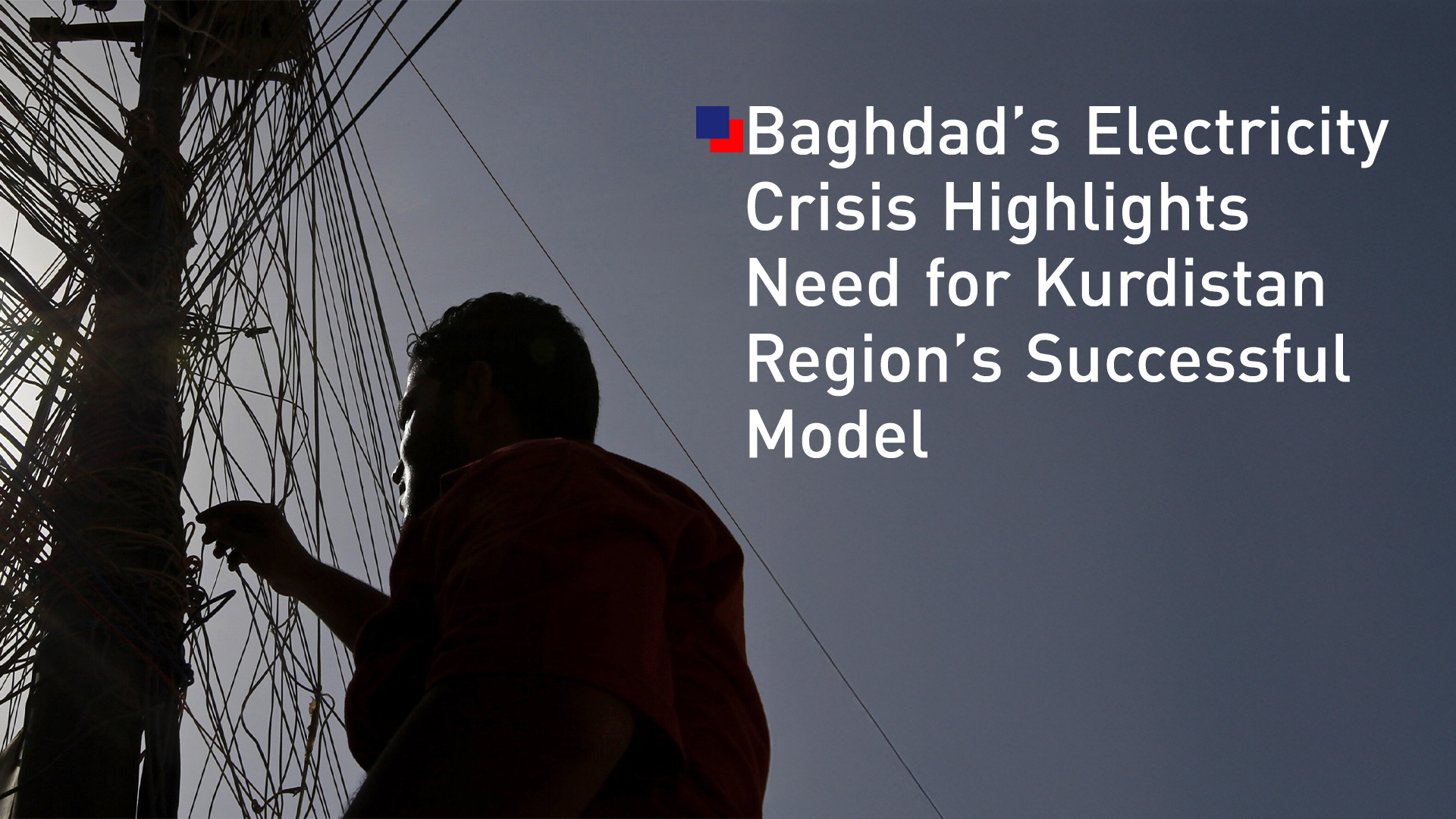Baghdad’s Electricity Crisis Highlights Need for Kurdistan Region’s Successful Model
On August 28, Kurdistan Region Prime Minister Masrour Barzani announced that approximately 4 million citizens and more than 115,000 businesses in the region now have access to 24-hour electricity through the Runaki program.

ERBIL (Kurdistan24) – Iraq’s capital continues to struggle with chronic electricity shortages, with officials warning that the gap between supply and demand is widening as the city’s population grows. Residents, frustrated by years of dependence on noisy private generators, are calling for sustainable solutions.
Ali Zarkani, chairman of the Oil and Gas Committee at the Baghdad Provincial Council, told reporters that the Ministry of Electricity currently provides only 5,500 megawatts (MW) of electricity daily to Baghdad, while the capital’s actual demand exceeds 12,000 MW. “This indicates a deficit of more than 50 percent,” he said.
With a population of over 13 million, Baghdad is one of the most energy-intensive cities in the country. Zarkani noted that the conversion of agricultural land into residential neighborhoods has further fueled electricity demand. He highlighted the Rasafa district, the capital’s main commercial hub, as one of the areas with the heaviest consumption, while Sadr City recorded the highest overall usage.
“The government’s only plan is to provide electricity through diesel generators, which does not meet the capital’s full needs,” Zarkani added. “The ultimate solution is to increase Baghdad’s share of electricity and adopt more sustainable alternatives.”
Kurdistan Region’s Model: The Runaki Program
Observers point to the Kurdistan Region as a model for addressing Iraq’s electricity crisis. On August 28, Kurdistan Region Prime Minister Masrour Barzani announced that approximately 4 million citizens and more than 115,000 businesses in the region now have access to 24-hour electricity through the Runaki program. Launched in October 2024, the initiative has already reached more than half of the population in less than a year.
“We are ready to cooperate with other parts of Iraq to achieve similar successes,” Prime Minister Barzani said.
International attention has also been drawn to the program. On August 31, the German news outlet Deutsche Welle (DW) reported that more than 2.7 million citizens are already benefiting from 24-hour electricity under Runaki, describing it as a transformative project that improves living standards, reduces air pollution, and boosts economic growth.
The program’s long-term goals extend beyond a reliable energy supply. By 2026, the Kurdistan Region expects to see substantial improvements in public health and environmental quality, with a notable reduction in air pollution-related diseases.
The Kurdistan Regional Government (KRG) launched the Runaki program on October 17, 2024, during a ceremony in Erbil’s Shadi neighborhood. It aims to ensure uninterrupted electricity for households and businesses while decreasing the reliance on costly and polluting generators.
Baghdad residents, meanwhile, continue to voice concerns over the lack of progress in resolving the capital’s electricity crisis. Analysts argue that adopting the KRG’s approach could offer Iraq a practical roadmap for overcoming decades of power shortages and securing a more sustainable energy future.